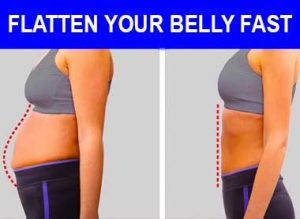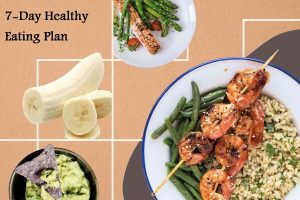
Hair loss is a prevalent concern that affects individuals of all ages, genders, and backgrounds. It can manifest in various forms, such as thinning hair, receding hairlines, or even bald patches, leading to both physical and emotional distress. As a result, people are often on the lookout for effective solutions to combat this issue and regain their lustrous locks. While there are several factors contributing to hair loss, one crucial aspect that plays a significant role in hair health is nutrition. A balanced diet and proper nourishment are essential for promoting healthy hair growth and minimizing the risk of excessive hair loss.
Amid the vast array of products and remedies available in the market, the significance of a well-rounded diet in maintaining hair health is often overlooked. Essential vitamins, minerals, and other nutrients play vital roles in supporting the hair follicles, strengthening the strands, and encouraging a healthy scalp environment. Understanding the relationship between nutrition and hair growth can empower individuals to make informed choices regarding their dietary habits and supplement intake.
By examining key nutrients and herbal supplements known for their positive impact on hair health, this guide seeks to equip readers with valuable knowledge to make educated decisions about their hair care regimen. However, it is crucial to acknowledge that while supplements can be beneficial, they are not a one-size-fits-all solution, and professional advice should be sought to determine the most suitable course of action based on individual needs and health conditions. With a focus on nutrition and supplementation, this article aims to offer a holistic approach to addressing hair loss and nurturing the journey to healthier, more resilient hair.
What is Hair Loss?
Hair loss is a complex and multifaceted issue that affects millions of people worldwide. To comprehend its intricacies, it is essential to explore its various types and causes. Hair loss can manifest differently in different individuals, and some of the common types include male pattern baldness, female pattern hair loss, alopecia areata, and telogen effluvium, among others. Each type has its unique characteristics and underlying mechanisms, contributing to the diversity of experiences among those facing this concern.
Several factors can trigger hair loss, making it crucial to examine the common causes behind this phenomenon. Genetics often play a significant role in hair loss, with family history acting as a strong predictor of pattern baldness. Additionally, hormonal imbalances, particularly the influence of dihydrotestosterone (DHT) in androgenetic alopecia, can contribute to hair thinning and loss. Nutritional deficiencies, such as insufficient intake of essential vitamins and minerals, can compromise the health of hair follicles and hinder proper hair growth. Moreover, modern-day stressors and lifestyle factors can also impact hair health, as chronic stress and poor self-care practices may disrupt the hair growth cycle.
One aspect that emerges as pivotal in addressing hair loss is the role of nutrition. A balanced diet rich in essential nutrients is not only crucial for overall well-being but also plays a significant role in promoting healthy hair growth and preventing hair loss. Vitamins such as A, B7 (biotin), C, and D, along with minerals like iron and zinc, are instrumental in supporting the hair follicles, stimulating growth, and maintaining hair strength. By understanding the crucial connection between nutrition and hair health, individuals can proactively take charge of their diet and incorporate supplements, if needed, to nourish their hair from within and potentially mitigate the effects of hair loss.
Essential Nutrients for Hair Health:
A. Vitamin A
- Functions and Benefits for Hair Growth:
Vitamin A is a vital nutrient that plays a crucial role in promoting healthy hair growth. One of its primary functions is to aid in the production of sebum, a natural oil that moisturizes the scalp and keeps the hair strands well-hydrated. Proper sebum production helps prevent dryness and breakage, promoting the overall health of the hair. Additionally, Vitamin A is essential for the maintenance of hair follicles and supporting the structure of hair strands. It contributes to the synthesis of keratin, a protein that forms the building blocks of hair, making the hair stronger, shinier, and less prone to damage. - Food Sources of Vitamin A:
Vitamin A is found in two forms: retinoids (preformed Vitamin A) and carotenoids (provitamin A). Some excellent sources of retinoids include liver, fish oils, and dairy products. Carotenoids, on the other hand, are abundant in colorful fruits and vegetables, such as carrots, sweet potatoes, spinach, kale, and mangoes. These carotenoids are converted into active Vitamin A in the body, providing an alternative source of this essential nutrient. - Recommended Daily Intake:
The recommended daily intake of Vitamin A varies depending on age, gender, and life stage. For adults, the recommended dietary allowance (RDA) is around 700 to 900 micrograms of retinol activity equivalents (RAE). It is essential to strike a balance, as excessive intake of Vitamin A can lead to toxicity, resulting in adverse health effects. Pregnant and breastfeeding individuals may have different requirements, and consulting with a healthcare professional or registered dietitian is advised to determine the appropriate dosage for individual needs.
It’s important to note that while Vitamin A is crucial for hair health, excessive supplementation is not recommended without professional guidance. A balanced diet that includes a variety of Vitamin A-rich foods, along with other essential nutrients, is the best approach to support overall hair health and prevent deficiencies that may contribute to hair loss or damage.

B. Biotin (Vitamin B7)
- Functions and Benefits for Hair Health:
Biotin, also known as Vitamin B7, is an essential water-soluble vitamin that plays a vital role in maintaining healthy hair. It is a coenzyme involved in various metabolic processes, particularly in the breakdown of macronutrients like carbohydrates, proteins, and fats. One of the primary benefits of biotin for hair health is its role in promoting the production of keratin, the protein that constitutes the structural foundation of hair, skin, and nails. Adequate levels of biotin contribute to stronger, more resilient hair, reducing the likelihood of hair breakage and split ends. Furthermore, biotin supports a healthy scalp by promoting improved blood circulation and nutrient delivery to hair follicles, fostering an optimal environment for hair growth. - Food Sources of Biotin:
Biotin is naturally present in a variety of foods, and many individuals can obtain sufficient levels of biotin through a balanced diet. Some excellent food sources of biotin include organ meats (liver), egg yolks, nuts (such as almonds, peanuts, and walnuts), seeds (like sunflower seeds), whole grains (oats and wheat bran), legumes (soybeans and lentils), and certain vegetables (such as sweet potatoes and spinach). Incorporating these biotin-rich foods into one’s diet can contribute to meeting the body’s daily biotin requirements. - Recommended Daily Intake:
The recommended daily intake of biotin varies depending on age, gender, and life stage. For adults, the adequate intake (AI) for biotin is typically around 30 to 100 micrograms (mcg) per day. Pregnant and breastfeeding individuals may have slightly higher biotin needs. Biotin deficiencies are rare in individuals with a well-balanced diet, as the body requires only small amounts of this vitamin. However, certain factors such as pregnancy, lactation, and certain medical conditions may increase biotin requirements. As with any supplement, it’s crucial to consult with a healthcare professional before taking biotin supplements to ensure it is appropriate for individual needs and avoid any potential interactions with other medications or health conditions.
In brief, biotin is a valuable nutrient for maintaining healthy hair by supporting the production of keratin and promoting optimal scalp health. A varied diet that includes biotin-rich foods can generally provide sufficient levels of this essential vitamin for most individuals. Nevertheless, for those with specific concerns or potential deficiencies, considering biotin supplementation under the guidance of a healthcare professional may help support overall hair health and growth.
C. Vitamin C
- Importance in Collagen Production for Hair Structure:
Vitamin C, also known as ascorbic acid, is a powerful antioxidant that serves numerous roles in the body, including its significance in collagen production. Collagen is a fibrous protein that provides structural support to various tissues, including the hair follicles and the skin surrounding them. In the context of hair health, collagen is essential for maintaining the integrity and strength of the hair strands. Adequate Vitamin C levels contribute to the synthesis of collagen, which, in turn, helps to fortify the hair shafts, reducing the risk of breakage and brittleness. Moreover, collagen also supports the tiny blood vessels that supply nutrients to the hair follicles, ensuring they receive the necessary nourishment for healthy hair growth. - Food Sources of Vitamin C:
Vitamin C is abundant in various fruits and vegetables, making it relatively easy for most people to incorporate into their diets. Citrus fruits, such as oranges, grapefruits, and lemons, are well-known for their high Vitamin C content. Other excellent sources include strawberries, kiwis, guavas, papayas, pineapples, and mangoes. Additionally, many vegetables are rich in Vitamin C, such as bell peppers, broccoli, Brussels sprouts, cauliflower, spinach, and kale. Consuming a colorful array of fruits and vegetables can provide ample Vitamin C, along with other essential nutrients, supporting not only hair health but overall well-being. - Recommended Daily Intake:
The recommended daily intake of Vitamin C varies depending on factors such as age, gender, and life stage. For most adults, the recommended dietary allowance (RDA) for Vitamin C ranges from 75 to 120 milligrams per day. However, during specific times of increased stress or illness, Vitamin C requirements may be higher. It’s essential to note that Vitamin C is water-soluble, meaning the body does not store excess amounts, and any surplus is excreted in urine. Therefore, it’s advisable to consume Vitamin C regularly through food sources or supplements, especially during times when dietary intake may be insufficient.
In brief, Vitamin C plays a pivotal role in maintaining hair health by supporting collagen production, which provides structural integrity to the hair shafts and follicles. Including a variety of Vitamin C-rich fruits and vegetables in one’s diet ensures an adequate supply of this essential nutrient. Meeting the recommended daily intake of Vitamin C not only benefits hair health but also contributes to overall skin health, immune function, and the body’s antioxidant defenses.
D. Vitamin D
- Role in Hair Follicle Cycling and Growth:
Vitamin D is a fat-soluble vitamin that plays a crucial role in various physiological processes, including hair follicle cycling and growth. Research suggests that Vitamin D receptors are present in hair follicles, indicating its involvement in regulating hair growth and cycling. Vitamin D helps to stimulate hair follicles to enter the anagen phase, which is the active growth phase of the hair cycle. In this phase, hair strands grow longer and thicker. Adequate levels of Vitamin D can prolong the anagen phase and promote continuous hair growth. Moreover, Vitamin D also aids in the activation of hair stem cells, which are responsible for initiating new hair growth and maintaining the overall health of hair follicles. - Food Sources of Vitamin D:
Unlike some other vitamins, Vitamin D is relatively limited in natural food sources. However, there are still some dietary options to obtain this essential nutrient. Fatty fish such as salmon, mackerel, and tuna are among the best food sources of Vitamin D. Additionally, cod liver oil is rich in Vitamin D. Small amounts of Vitamin D can also be found in beef liver, egg yolks, and cheese. Some fortified foods, such as certain types of milk, orange juice, and breakfast cereals, may also contain added Vitamin D to help individuals meet their daily requirements. - Recommended Daily Intake:
The recommended daily intake of Vitamin D varies depending on age, gender, and other factors. For most adults, including pregnant and breastfeeding individuals, the recommended dietary allowance (RDA) of Vitamin D is around 600 to 800 international units (IU) per day. However, some individuals, particularly those with limited sun exposure, certain medical conditions, or specific risk factors, may require higher doses of Vitamin D. It is essential to consult with a healthcare professional to determine the appropriate dosage for individual needs and to monitor Vitamin D levels through blood tests, if necessary.
In brief, Vitamin D plays a vital role in promoting hair follicle cycling and growth, making it an essential nutrient for maintaining healthy hair. While obtaining Vitamin D from food sources is possible, many individuals rely on sunlight exposure to meet their requirements. However, depending solely on sun exposure may not be sufficient for everyone, especially in regions with limited sunlight or during certain seasons. Thus, ensuring adequate Vitamin D intake through food sources and, if needed, supplementation, can contribute to healthy hair growth and overall well-being.

E. Iron
- Significance in Preventing Hair Loss due to Iron Deficiency Anemia:
Iron is a crucial mineral that plays a significant role in preventing hair loss, particularly when it comes to iron deficiency anemia. Anemia occurs when the body lacks sufficient healthy red blood cells to carry oxygen to body tissues, including the hair follicles. Without adequate oxygen supply, the hair follicles may enter a dormant phase, leading to hair thinning, shedding, and even hair loss. Iron is an essential component of hemoglobin, a protein in red blood cells that binds to oxygen and transports it throughout the body. Sufficient iron levels support the production of healthy red blood cells, ensuring an ample oxygen supply to the hair follicles, thus promoting healthy hair growth and preventing hair loss due to anemia. - Food Sources of Iron:
Iron can be found in two forms in dietary sources: heme iron and non-heme iron. Heme iron, which is more easily absorbed by the body, is found in animal-based foods such as red meat, poultry, and fish. Some of the best sources of heme iron include beef, liver, chicken, and salmon. Non-heme iron, on the other hand, is present in plant-based foods such as beans, lentils, tofu, spinach, fortified cereals, and pumpkin seeds. Although non-heme iron is not as readily absorbed as heme iron, consuming it alongside Vitamin C-rich foods can enhance its absorption. - Recommended Daily Intake:
The recommended daily intake of iron varies based on factors such as age, gender, and life stage. For most adults, the recommended dietary allowance (RDA) of iron is around 8 to 18 milligrams per day. However, the RDA for women of childbearing age, especially during menstruation, is higher to account for potential iron losses. Pregnant individuals also have increased iron requirements, typically ranging from 27 to 30 milligrams per day. It is essential to keep track of iron intake, as both iron deficiency and excess iron can have adverse effects on health. Consulting with a healthcare professional or registered dietitian can help determine the appropriate iron intake based on individual needs and health status.
To sum-up, iron is vital for preventing hair loss, particularly when it is related to iron deficiency anemia. Ensuring an adequate intake of iron through a balanced diet that includes both heme and non-heme iron sources can support healthy red blood cell production and oxygen delivery to the hair follicles, promoting optimal hair growth. However, excessive iron intake can be harmful, so it is essential to aim for the recommended daily intake and seek professional guidance if necessary.
F. Zinc
- Impact on Hair Tissue Repair and Growth:
Zinc is a vital trace mineral that plays a significant role in various biological processes, including hair tissue repair and growth. One of its essential functions for hair health is its involvement in DNA and RNA production, which is crucial for the division and growth of hair follicle cells. Adequate zinc levels contribute to the repair and maintenance of hair tissues, preventing hair breakage and promoting overall hair strength and resilience. Furthermore, zinc also plays a role in supporting the synthesis of proteins, including keratin, the primary structural component of hair. This protein helps keep the hair strands strong, preventing them from becoming brittle and prone to damage. - Food Sources of Zinc:
Zinc can be found in a variety of foods, both of animal and plant origin. Some excellent sources of zinc from animal-based foods include red meat (beef, lamb), poultry (chicken, turkey), fish (salmon, tuna), and shellfish (oysters, crab, shrimp). Additionally, dairy products such as cheese and yogurt also provide zinc. For those following a plant-based diet, good sources of zinc include legumes (chickpeas, lentils, beans), nuts and seeds (pumpkin seeds, cashews), whole grains (oats, quinoa), and fortified cereals. Consuming a diverse diet that includes these zinc-rich foods can help maintain adequate zinc levels in the body. - Recommended Daily Intake:
The recommended daily intake of zinc varies depending on age, gender, and life stage. For most adults, the recommended dietary allowance (RDA) of zinc is around 8 to 11 milligrams per day. Pregnant and breastfeeding individuals may have slightly higher zinc requirements. Zinc is not stored in the body for an extended period, so it’s essential to obtain an adequate daily intake through the diet. However, excessive zinc intake can interfere with the absorption of other essential minerals like copper, so it’s crucial to stay within the recommended limits. As with any supplement, consulting with a healthcare professional or registered dietitian is recommended to determine individual zinc needs and avoid potential interactions with other medications or health conditions.
In conclusion, zinc plays a crucial role in hair tissue repair and growth by supporting DNA and RNA production, protein synthesis, and the overall health of hair follicles. Consuming a balanced diet that includes zinc-rich foods can help ensure sufficient zinc intake, contributing to healthy hair and preventing hair breakage and damage. As with all essential nutrients, meeting the recommended daily intake of zinc is essential for overall well-being and hair health.
Herbal Supplements for Hair Loss:
A. Saw Palmetto
- Potential Benefits in Blocking DHT (dihydrotestosterone) Production:
Saw Palmetto is a herbal supplement derived from the fruit of the Serenoa repens plant. It is commonly used to address hair loss, particularly in cases of androgenetic alopecia, where dihydrotestosterone (DHT) plays a significant role. DHT is a hormone derived from testosterone that can cause hair follicles to shrink and lead to hair thinning and eventual hair loss. Saw Palmetto is believed to inhibit the enzyme responsible for converting testosterone to DHT, thereby potentially reducing the negative effects of DHT on hair follicles. By blocking DHT production, Saw Palmetto may support healthier hair growth and help slow down the progression of hair loss in some individuals. - Recommended Dosage and Precautions:
The appropriate dosage of Saw Palmetto may vary depending on the formulation of the supplement and individual factors such as age, gender, and overall health. Generally, the typical dosage of Saw Palmetto for hair loss ranges from 160 mg to 320 mg per day, taken as divided doses. It is crucial to follow the dosage instructions provided on the supplement packaging or as advised by a healthcare professional. As with any herbal supplement, it is essential to consult with a healthcare provider before starting Saw Palmetto, especially if you are taking other medications or have any underlying health conditions. Additionally, pregnant and breastfeeding individuals should avoid Saw Palmetto, as its safety during pregnancy has not been fully established.
B. Horsetail Extract
- Rich in Silica, Supporting Hair Strength and Elasticity:
Horsetail (Equisetum arvense) is an herbal supplement known for its high silica content. Silica is a trace mineral that is essential for the formation of collagen, a protein that contributes to the strength and elasticity of hair and other connective tissues. By providing the necessary building blocks for collagen production, horsetail extract may help improve hair strength, making it more resistant to breakage and damage. Additionally, silica is believed to support overall scalp health, potentially creating a conducive environment for hair growth. - Recommended Dosage and Precautions:
The appropriate dosage of horsetail extract can vary based on the specific product and concentration. Typically, a common dosage range is around 300 mg to 600 mg per day, taken in divided doses. However, it is essential to refer to the supplement label or consult with a healthcare professional for specific dosage recommendations. Pregnant and breastfeeding individuals should avoid horsetail extract due to potential safety concerns. Furthermore, horsetail contains thiaminase, an enzyme that can break down thiamine (Vitamin B1). Prolonged and excessive use of horsetail supplements could potentially lead to thiamine deficiency, so it’s important to use it as directed and not to exceed the recommended dosage.

C. Pumpkin Seed Oil
- Effect on Hair Growth and Hormonal Balance:
Pumpkin seed oil is derived from pumpkin seeds and is rich in essential fatty acids, antioxidants, and minerals like zinc and magnesium. These nutrients are believed to have potential benefits for hair growth and hormonal balance. Pumpkin seed oil may support hair follicle health and hair growth by providing essential nutrients and promoting a healthy scalp environment. Additionally, some studies suggest that pumpkin seed oil may help balance hormones, particularly reducing the levels of dihydrotestosterone (DHT) in the body. As mentioned earlier, high levels of DHT can contribute to hair loss in certain individuals. - Recommended Dosage and Precautions:
The appropriate dosage of pumpkin seed oil can vary based on the product and concentration. Generally, a typical dosage for hair health is around 1000 mg to 2000 mg per day, taken with meals. As with any herbal supplement, it’s essential to follow the recommended dosage on the product label or consult with a healthcare professional. Pregnant and breastfeeding individuals should exercise caution and consult with their healthcare provider before using pumpkin seed oil supplements. While pumpkin seed oil is generally safe for most people, some individuals may experience mild gastrointestinal side effects such as nausea or stomach discomfort. If any adverse reactions occur, it is advisable to discontinue use and seek medical advice.
Omega-3 Fatty Acids:
A. Importance of Omega-3s for Hair Health:
Omega-3 fatty acids are essential polyunsaturated fats that play a vital role in promoting hair health and overall well-being. Among the various types of omega-3s, two particularly important ones for hair health are eicosapentaenoic acid (EPA) and docosahexaenoic acid (DHA). These fatty acids are crucial components of the cell membranes in the scalp and hair follicles, contributing to their strength and integrity. A healthy cell membrane facilitates nutrient transport into the hair follicles and waste removal from the cells, creating an optimal environment for hair growth.
Moreover, omega-3s have anti-inflammatory properties that can benefit the scalp and hair follicles. Chronic inflammation in the scalp can disrupt the hair growth cycle and contribute to hair loss. By reducing inflammation, omega-3s help protect hair follicles from damage and promote a healthy scalp environment. Additionally, omega-3s support overall circulation, including blood flow to the scalp, which further enhances the delivery of essential nutrients to hair follicles.
B. Food Sources of Omega-3 Fatty Acids:
Omega-3 fatty acids can be obtained from both marine and plant-based sources. The richest sources of EPA and DHA are cold-water fatty fish such as salmon, mackerel, sardines, herring, and trout. Consuming these fish regularly can significantly contribute to the intake of omega-3s.
For individuals following a vegetarian or vegan diet, plant-based sources of omega-3 fatty acids can be beneficial. The primary plant-based omega-3 fatty acid is alpha-linolenic acid (ALA), which the body can partially convert into EPA and DHA. Good sources of ALA include flaxseeds, chia seeds, hemp seeds, walnuts, and algae-based supplements.
C. Recommended Daily Intake:
The recommended daily intake of omega-3 fatty acids varies based on age, gender, and specific health conditions. For adults, including pregnant and breastfeeding individuals, a general guideline is to consume around 250-500 milligrams of EPA and DHA combined per day. For vegetarians and vegans relying on ALA sources, a higher intake of ALA is needed since the conversion of ALA to EPA and DHA in the body is not very efficient. Around 1,100 milligrams of ALA per day is recommended for adult women, and 1,600 milligrams for adult men.
It’s essential to maintain a balanced diet and incorporate a variety of omega-3-rich foods to meet daily requirements. For individuals who struggle to obtain enough omega-3s through their diet, supplementation with fish oil or algae-based omega-3 supplements may be considered under the guidance of a healthcare professional.
Multivitamin Supplements for Hair Growth:
A. The Convenience and Comprehensiveness of Multivitamins:
Multivitamin supplements offer a convenient and comprehensive approach to meeting daily nutrient needs. In today’s fast-paced lifestyles, it can be challenging to maintain a perfectly balanced diet that provides all essential vitamins and minerals. Multivitamins address this concern by combining a wide range of nutrients into a single pill or capsule, making it easier for individuals to ensure they are getting the necessary vitamins and minerals to support their overall health, including hair health.
By taking a multivitamin, individuals can fill potential nutritional gaps in their diet, especially if they have dietary restrictions, limited access to certain foods, or specific health conditions that may impact nutrient absorption. The convenience of having multiple nutrients in one supplement simplifies the process of managing one’s nutritional intake and can be particularly helpful for those who struggle with remembering to take individual supplements.
B. Choosing a High-Quality Multivitamin for Hair Health:
When selecting a multivitamin to support hair health, consider the following factors:
- Hair-Specific Nutrients: Look for a multivitamin that contains essential vitamins and minerals known to promote hair health, such as Biotin (Vitamin B7), Vitamin C, Vitamin E, Vitamin D, iron, zinc, and selenium. These nutrients play vital roles in supporting hair growth, preventing hair loss, and maintaining healthy hair follicles.
- Adequate Dosages: Ensure that the multivitamin provides sufficient amounts of each nutrient to meet daily requirements. Avoid supplements that contain excessively high doses of certain nutrients, as megadoses can be unnecessary and even harmful.
- Bioavailability: Choose a multivitamin that includes nutrients in forms that are easily absorbed and utilized by the body. For example, opt for methylated B-vitamins, which are more bioavailable for individuals with certain genetic variations affecting B-vitamin metabolism.
- No Harmful Additives: Avoid multivitamins that contain unnecessary fillers, artificial colors, or preservatives. Read the ingredient list to ensure the supplement is free from potentially harmful additives.
- Consider Individual Needs: Tailor your choice to your specific needs. If you have dietary restrictions or allergies, choose a multivitamin that is suitable for your dietary preferences and restrictions. Additionally, if you have specific hair concerns, such as thinning hair or hair loss, consider a multivitamin with added ingredients like additional Biotin or specific herbal extracts that support hair growth and health.
- Reputable Brand: Purchase multivitamins from reputable brands that follow high-quality manufacturing standards and undergo third-party testing for purity and potency.

Lifestyle Changes for Hair Health:
A. Managing Stress and its Impact on Hair Loss:
Stress can have a significant impact on hair health and can contribute to hair loss or exacerbate existing hair conditions. When under stress, the body may enter a state known as telogen effluvium, where hair follicles prematurely enter the resting phase and shed more than usual. Chronic stress can also disrupt hormonal balance, leading to conditions like androgenetic alopecia (male or female pattern baldness).
To manage stress and promote hair health, consider incorporating stress-reduction techniques into your daily routine. These may include practicing mindfulness, meditation, yoga, deep breathing exercises, regular physical activity, spending time in nature, engaging in hobbies, and getting enough restful sleep. Seeking support from friends, family, or professional counselors can also help alleviate stress and its impact on hair health.
B. Adopting a Balanced Diet and Staying Hydrated:
A balanced diet rich in essential nutrients is crucial for overall health, including the health of your hair. Nutrients like protein, vitamins (particularly B-complex vitamins and Vitamin C), minerals (such as iron, zinc, and selenium), and omega-3 fatty acids all play essential roles in promoting hair growth, strength, and shine.
Incorporate a variety of nutrient-dense foods into your diet, including fruits, vegetables, whole grains, lean proteins, nuts, and seeds. Stay hydrated by drinking an adequate amount of water daily, as dehydration can affect the moisture levels of the hair and scalp.
Avoid crash diets or extreme restrictions, as they can lead to nutrient deficiencies that may negatively impact hair health. If you are concerned about meeting your nutrient needs through diet alone, consider incorporating a balanced multivitamin supplement under the guidance of a healthcare professional.
C. Regular Scalp Care and Hair Maintenance:
Proper scalp care and hair maintenance are essential for promoting healthy hair. Keep your scalp clean by regularly washing your hair with a mild shampoo and conditioner suitable for your hair type. Avoid excessive use of heat styling tools, as they can damage the hair shafts. When using styling products, opt for those that are gentle on the hair and scalp.
Massaging the scalp can stimulate blood flow to the hair follicles, promoting nutrient delivery and hair growth. Consider incorporating scalp massages into your hair care routine to enhance overall scalp health.
Regular hair trims can help prevent split ends and breakage, promoting healthier-looking hair. Trimming every 6-8 weeks can help maintain the hair’s appearance and overall condition.
Avoid pulling hairstyles that put excessive tension on the hair, such as tight ponytails or braids, as this can lead to hair breakage and damage.
Conclusion:
In this guide, we explored several supplements that are commonly recommended for promoting hair health and addressing hair loss:
- Essential Nutrients: Vitamins like Vitamin A, Biotin (Vitamin B7), Vitamin C, and Vitamin D, along with minerals such as iron and zinc, play crucial roles in supporting hair growth and preventing hair loss.
- Herbal Supplements: Saw Palmetto, Horsetail Extract, and Pumpkin Seed Oil are herbal supplements known for their potential benefits in blocking DHT production, supporting hair strength and elasticity, and promoting hair growth and hormonal balance.
- Omega-3 Fatty Acids: Omega-3s, particularly EPA and DHA, are essential for hair health due to their role in supporting cell membranes, reducing inflammation, and promoting scalp circulation.
While these supplements can be beneficial for hair health, it is essential to recognize that a holistic approach is key to achieving optimal results. Supplements should complement a well-balanced diet that provides essential nutrients naturally. Additionally, lifestyle factors like managing stress, staying hydrated, and maintaining proper scalp care are equally critical in supporting healthy hair growth.
A holistic approach considers the interplay of various factors, including genetics, hormonal balance, overall health, and hair care practices. By addressing the underlying causes of hair issues and supporting overall well-being, individuals can achieve more sustainable and long-lasting improvements in hair health.
As readers, it is essential to approach hair care with a sense of awareness and informed decision-making. Before starting any supplements, including multivitamins and herbal remedies, consulting with a healthcare professional is crucial. A healthcare provider can assess individual health needs, recommend appropriate supplements, and monitor for any potential interactions or adverse effects.
Additionally, when choosing hair care products and treatments, consider the specific needs of your hair and scalp. Be mindful of the ingredients in hair care products and avoid excessive heat styling or harsh practices that can damage the hair.
Remember that hair health is a journey that requires patience and consistent effort. What works for one person may not work for another, so finding the right approach for your unique needs is essential.




